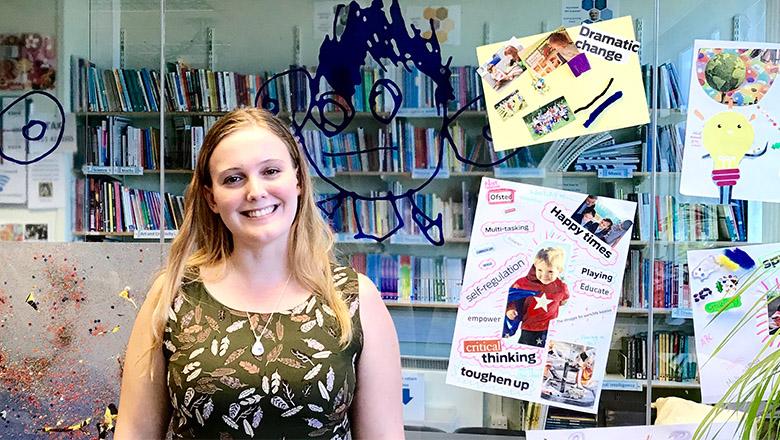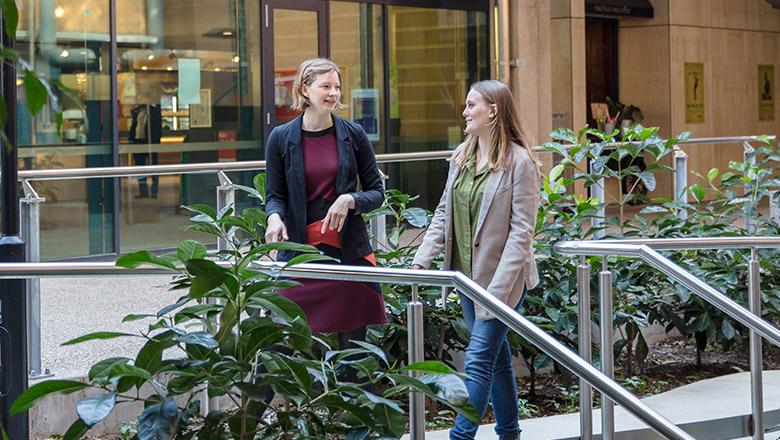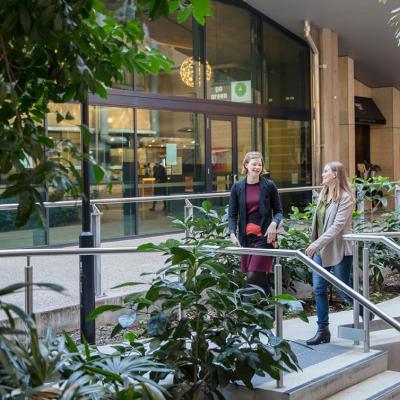Expressing academic research to children in their own language is at the heart of a special bond between researchers Emma Cooke and Dr Sally Staton as well as the core of Emma's PhD in sociology.
Emma Cooke’s PhD in sociology was never going to be an ordinary undertaking.
As an enthusiast linked to the Departing Radically in Academic Writing (DRAW) group at UQ, Emma wanted to create something out of the box to fit her pet topic area.
“My particular area of research involves interviewing lots of children,” says Emma, a PhD candidate and research assistant in the Child Development, Education and Care Group at UQ’s Institute for Social Science Research.
“I’m passionate for advocating the idea that children are competent and they have their own ideas which they want to express and share. Thinking of the language we use… language has power. Often we can be quite condescending to children, so I wanted to draw attention to the fact that, yes, kids are silly but they also talk a lot of sense, and they process things quite intelligently."
“I believe it’s possible to embrace both the elements of silliness and seriousness. It’s not one or the other."

“Involving the child’s perspective in policy decisions is also vital," says Emma.
"A lot of massive issues get made by adult decision-makers and the children are left out of the conversation.”
Emma's research approach
Emma’s different take on her research has seen her purposefully tend towards using unconventional language in both the gathering and communication of research. One of the outcomes of her PhD in sociology will be a children’s book that expresses the research back to the children in words and pictures they can consume and relate to.
“We’re talking about research in accessible language,” says adviser Dr Sally Staton.
“After all, who does the knowledge belong to? Emma’s making research available to laypeople and children and translating her research back to who it is about, rather than it always being purely about the academics.”
The departure from conventional formats requires a solid understanding and profound levels of trust between Emma and Sally.
“Sally is great because she gives me a lot of freedom, which works for me, whereas some other people might want structure in place to help them,” says Emma.
“I think the style of relationship we have developed allows me to explore new things, which I enjoy. Others might panic. But Sally also has the expertise to contextualise my work and ground me when needed."
“It’s a good situation for novel ideas to emerge.”

A supportive yet non-intrusive supervising style
Rather than completely letting go of the reins, Sally is in regular contact to support and oversee Emma’s progress. She believes figuring out what makes each PhD candidate tick is one of the most enjoyable aspects of her role.
“All good supervisors realise that each student comes with very different skill sets and different needs. They arrive at different times in their lives, and from varied backgrounds,” says Sally.
“That’s the thing I love... finding how I can support every single student in the way that benefits them most. In Emma’s case, it’s giving her freedom to be creative, but also putting things in place to give her the confidence to proceed.
“Other students might be really big on detail but lack the larger picture, or vice versa, where they don’t know what they want to drill down to. I encourage people to own their ideas and really determine where they want to go. For Emma, I wanted to support her in taking it where she wanted, because I knew she had some strong and unique concepts.”
Your research career begins here at UQ. Explore our scholarships or submit an expression of interest now.





